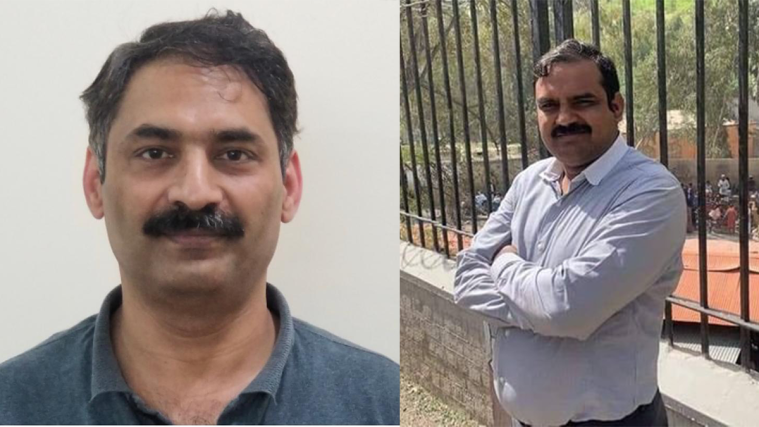New York, June 8, 2023–Pakistan authorities must cease harassing journalists Ahmad Noorani and Shahid Aslam and allow them to work without interference, the Committee to Protect Journalists said Thursday.
In late May, Pakistan’s Federal Investigation Agency (FIA) issued an investigative report, which CPJ reviewed, accusing the journalists of involvement in illegally accessing the tax records of former Pakistan army chief Qamar Javed Bajwa and his family alongside three officials with the country’s Federal Board of Revenue (FBR).
The FIA’s Anti-Corruption Circle opened an investigation into those board officials on December 15, according to a first information report reviewed by CPJ. The investigation followed a November 2022 article on Bajwa and his family’s assets published on the independent news website Fact Focus by Noorani, who contributes to the outlet from exile in the U.S. The Pakistan government subsequently blocked domestic access to Fact Focus for around 24 hours, Noorani told CPJ by phone.
The investigative report, known as a challan, declared Noorani a “proclaimed offender” in the case and stated that “legal efforts are being made for his arrest.” If Noorani does not surrender to the agency, the FIA may initiate a legal process to confiscate his properties and assets, the journalist said, adding that authorities did not send a court summons or arrest warrant to his address in Pakistan, which is listed in the challan.
The same challan accused Aslam, a freelance journalist and former correspondent for the privately owned broadcaster BOL News, of offering a bribe to FBR officials to obtain the tax data. Aslam, who has critically reported on the FIA, told CPJ by phone that he denied all allegations against him and was not involved in the Fact Focus article. Aslam told CPJ that he has been summoned to appear in court on July 19, when the bench will determine the nature of the charges against him and the three FBR officials.
In January 2023, the FIA arrested Aslam and seized his mobile phone and laptop, accusing him of involvement in the leak. The phone and laptop remain in the agency’s custody for forensic analysis, according to the challan and Aslam.
“Pakistani authorities targeting exiled journalist Ahmad Noorani following his reporting on the tax records of Pakistan’s former army chief and his family is a clear intimidation and threat to press freedom,” said Beh Lih Yi, CPJ’s Asia program coordinator. “Authorities must drop any investigation into Noorani and journalist Shahid Aslam, and immediately return the electronic devices seized during Aslam’s arrest.”
Noorani, who previously worked as a senior reporter for the privately owned Pakistani newspaper The News International and critically covered the country’s military and intelligence agencies, survived a near-fatal attack in October 2017 in Islamabad, Pakistan’s capital. Authorities have failed to hold those behind the attack accountable and did not conduct geo-fencing—the identification of active mobile numbers in a specific area and a common practice used during investigations in Pakistan—to identify the perpetrators, Noorani told CPJ.
In 2020, while working from exile, Noorani received death threats in retaliation for his critical reporting on another retired army general.
CPJ’s calls and messages to FIA Director-General Mohsin Butt and Islamabad Police Inspector-General Akbar Nasir Khan received no replies. CPJ was unable to identify contact information for Bajwa.
Following the publication of this article, Sarfraz Hussain, press counselor for Pakistan’s U.S. Embassy, emailed CPJ a response credited to Ambreen Jan, executive director-general of the Ministry of Information and Broadcasting’s external publicity wing.
The message said that the leak of Bajwa’s family members’ tax records was “[i]llegal and unwarranted,” a “violation of the complete confidentiality of tax information under the law,” and that the FIA’s investigation should not be considered an attack on press freedom.The response added that FIA’s actions, including Aslam’s arrest and the seizure of his electronic devices, “were in accordance with legal procedures and based on solid evidence.”
Jan’s response accused Aslam of providing tax information to Noorani and said Aslam had “mala fide intentions” by allegedly bribing an FBR official. Aslam told CPJ that he rejected those allegations.
The office also disputed Noorani’s allegations that authorities had not sent a court summons or arrest warrant to his Pakistan address.
Pakistan’s Protection of Journalists and Media Professionals Bill, 2021, includes provisions that protect journalists’ right to privacy and the confidentiality of their sources.
On June 10, the Human Rights Commission of Pakistan nongovernmental organization posted a statement to Twitter stating that the declaration of Noorani as a proclaimed offender in the case was “disproportionate” and urged the Islamabad High Court to take notice of the case and grant relief to the journalist.
[Editors’ note: This article has been updated to include Jan’s response to CPJ.]
